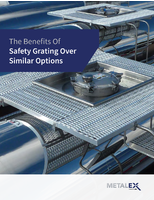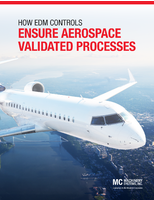End-User Stories of EnerBurn in Minnesota Business Magazine Feature on Efficiency in Transportation Industry
In the ultra-competitive logistics and transportation business, efficiency isn’t a made-for-marketing convenience. It’s a matter of necessity.
“I don’t like ‘sustainability’ as a buzzword,” says Daniel Nelsen, global logistics manager for Wayzata Home Products, a Minnetonka-based home remodel supplier. “Logistics is sustainability. It’s not just tightening up here or there; it’s about making every factor as efficient as possible.”
Nelsen’s job involves routing his company’s voluminous production to customers in the lower 48 states, but he doesn’t operate in a vacuum. Far from it. He’s just one efficiency-minded node in a dizzyingly complex logistical ecosystem that’s continually working to shave off minutes, miles, pounds and gallons.
Here’s a look at three of those nodes, all made in (or directed from) Minnesota.
Solving the final mile puzzle
Nelsen has two equally important goals: “route the most freight to the lowest number of places, and get [freight as close as possible to the customer.”
These equal goals are in tension. Routing to the fewest places usually involves shipping between big-city hubs. But customers can be scattered all over.
The (partial) solution lies in shortening the “final mile,” or the trek from major hubs to provincial destinations: Denver to Rapid City, South Dakota, for instance. The more manageable Nelsen can make that “final mile,” the more efficient (and cost-effective) the process becomes. If he can shorten his Rapid City final mile, say by shipping direct from the factory to Cheyenne, Wyoming, rather than Denver, he’ll save money, reduce vehicle miles and emissions, and hasten delivery times.
Nelsen works with asset-based carriers, eschewing an in-house fleet or contracts with independent drivers. That takes some uncertainty out of the process and allows Nelsen to focus on what he does best: devising manageable freight routes.
“I’m not going to think of everything,” he says. “I want vendors willing to partner with me and see things I don’t.”
Bringing independent carriers into the 21st Century
What about the carriers themselves? Despite its ultra-competitive nature, the transportation industry is behind the technological curve in many ways. Even big companies rely on archaic, paperwork- and call-heavy procedures to find drivers for their loads. The process, far from an exact science, can take hours. And time lost is money lost — for drivers and shippers.
Victory Green is improving this process one load at a time. Her company, Victory Green Logistics, worked with a team of programmers to devise a proprietary digital logistics platform for Minneapolis-based TR Technologies.
TR Technologies’ platform combines the characteristics of a load board, which in the old days was literally a board with information about drivers, trucks and freight trailers, with a PayPal-like secure payment system that facilitates transactions between shippers and contract drivers. According to Green, the platform can consummate a transaction — from first contact to payment — in three minutes or less.
“It’s a win-win,” says Green. “It makes [shippers more efficient and helps operators find trailers, get back on the road, and run their businesses more smoothly.”
A hypothetical driver running round-trip from Minneapolis to Atlanta might use TR’s platform to request and (hopefully) reserve freight in Atlanta before arriving there. In Georgia, they’d drop off their Minneapolis load and immediately head to the pick-up location, bypassing the truck stop or parking lot they’d normally use to call around for another load. They get back on the road — and back to their families — faster. And, in all likelihood, they’re happier and less stressed when they arrive.
“Happy drivers make the world go round,” says Green. “Without that, you have nothing.”
Keeping trucks on the road (and out of the shop)
Not every truck is destined for the open road. But, as any old station wagon owner knows, it’s those local miles that can really stress an engine.
Gordon Wick runs a four-truck propane delivery fleet in northern Michigan. During the winter busy season, he’d lose valuable hours to the trucks’ automated pollution warnings, “which would basically shut down the engines.” After diagnosing and resetting Wick’s engine systems for the umpteenth time, a local tech recommended that Wick look into a fuel additive called EnerBurn. EnerBurn helps engines burn off soot particles, which normally build up quickly at idle and low speed. “EnerBurn eliminates the operational issues that occur at idling,” says Jane Gates, founder and president of St. Paul-based JKG Fuel Solutions. These problems are exacerbated by new emissions control technologies, such as diesel particulate filter (DPF) systems, which are prone to gunking.
Wick started using EnerBurn in early 2015. Since then, “we have not had to call a tech back for that particular problem,” says Wick.
EnerBurn is designed for use with heavy-duty diesel trucks: utility rigs, trash haulers, fuel delivery trucks, cement mixers, 18-wheelers. Most of Gates’ customers are independent truckers or SMBs with captive fleets that spend lots of time idling.
“A diesel additive’s biggest bottom-line benefit is reducing or eliminating repairs related to soot buildup in the exhaust system,” says Gates. Depending on the truck and the problem’s severity, those repairs can cost $5,000 to $20,000 a pop.
“It’s a win-win for us and the fleet service professionals,” adds Wick. “They’re busy too, and their skills are better served by higher value work.”
For small trucking outfits, additives like EnerBurn are financial godsends. Ron Adams, an independent trucker in central Kentucky, owns seven trucks, two of which use EnerBurn: a 2012 Mack and a 2013 International. Most of his day is spent in a 19-mile loop between a major production brewery and a distribution warehouse; he farms out long-haul work in his spare truck.
Prior to the Mack, he put “forty grand the first year alone” into a 2009 Volvo with a diesel particulate filters. “I was seeing failures right and left,” he recalls. “Something had to change or I needed to get out of the business.”
Initially reticent to cut an expensive additive into his already-thin margins, and worried that EnerBurn was little more than “snake oil,” Adams gave it a tentative try.
It works. Now, Adams can go three months or longer — “that’s unheard of” — without doing a costly manual regen cleaning on the Mack. The International did have a recent problem not covered by warranty, but the company rep who looked at it made an exception because the system was so clean. That saved Adams $5100.
“It’s not snake oil,” says Adams. “It eliminates soot, period.”




